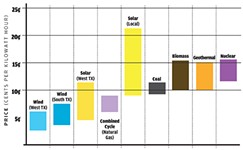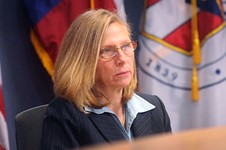Point Austin: The Affordability Conundrum
Finding ways to afford it
By Michael King, Fri., Sept. 20, 2013
Are you feeling two hundredths of a penny richer than you were last month?
That was one official effect of the new city of Austin budget, approved Sept. 10 by City Council to carry a 50.27 cents per $100 assessed value property tax rate – .02 cents lower than last year's 50.29 rate. (Perhaps it hasn't hit your wallet yet, since FY 2014 begins Oct. 1.) Nevertheless, you should simultaneously be feeling poorer; as the city's web page officially informs us: "The tax rate will effectively be raised by 5.1 percent and will raise taxes ... on a $100,000 home by approximately $18.80."
So you're up two hundredths of a cent, but also out 19 bucks. Call it the downside of prosperity: Rising local property values mean our property is worth more, and the (slightly) lower tax rate still brings in more money.
I note this seeming paradox not to mock the Council's laudable effort to hold the line, but as an introduction to the conundrum of "affordability." Everyone talks about affordability – it's the municipal buzzword of the day – but often at cross-purposes, or while promoting contradictory and not-very-well-hidden agendas. Most of the time the discussion refers only to public costs (i.e., taxes), without addressing or even seriously considering what, as a community, we are purchasing with those expenditures. And even less often is the awkward question asked, "affordability for whom?"
One quick example: The rise in property values (i.e., our common prosperity) allowed Council not only to limit the tax rate, but also to add nearly $4 million to support and maintain Austin parks – a broadly popular expenditure that no one of us could "afford" on our own. In effect, as a community in the new year, we'll be $4 million richer in sustainable green space.
So will our property values rise?
Can We Get There From Here?
I've been pondering the contradictions of affordability more acutely since I spent a Saturday afternoon (Sept. 7) with more than 100 Austinites spinning contemporary variations on Blind Alfred Reed's Depression-era tune, "How Can a Poor Man Stand Such Times and Live?" The "Affordability Summit" was sponsored by Liveable City, the Austin Creative Alliance, HousingWorks, Public Citizen Texas, and the Sustainable Food Center. Following several speakers on specific aspects of Austin's rising costs, breakout groups worked to come up with "100 ideas for an affordable Austin" (to be compiled in due course by Liveable City).
Keynote speaker Scott Bernstein, president and co-founder of the Chicago-based Center for Neighborhood Technology, set a historical context by describing a shift in basic household expenses in recent decades. Most specifically, he said, until the decades after World War II, transportation represented a small portion of household costs. But with the explosive growth of suburbs – enabled in large part by the public subsidy of highway systems – transportation (primarily vehicle costs) now nearly equals housing costs in the American budget (together roughly 51%).
Unless cities like now-sprawling Austin can promote "connectivity," Bernstein argued, through "location-efficient" planning and effective mass transit, the affordability problem can only get worse.
But it will cost money to get there.
That turned out to be a tension – pay now, or pay later – running through the presentations. Housing advocate Heather Way argued that the city has so far invested far too little in affordable housing – meaning a shortfall we'll try again to make up this fall, with a housing bond vote. Public Citizen's Tom "Smitty" Smith noted that, in addressing climate change, we need to find ways to incentivize less energy use and more renewables – without simultaneously bankrupting our publicly owned utility, Austin Energy, which pays for many public services. Liveable City Chair Ann Kitchen noted that without underwriting public health care costs, we'll maintain a "swiss cheese" health care system, as many of us fall through the holes.
Affordable Incomes
Afterward, I asked Kitchen about that paradox running through the presentations. She said affordability doesn't necessarily mean more spending, just "different spending." "One key to addressing affordability in a comprehensive approach requires we rethink where we spend our money," she argued, "whether it's on more location-efficient areas, energy conservation, urban gardens, or allowing a greater variety of housing types – we can greatly affect affordability, and watch the public purse."
Kitchen added, "If we're going to make headway, we have to break out of the siloed thinking about what affordability means." She was speaking primarily of the silos separating, for example, housing advocates from transportation advocates from health care advocates. But as a community, we also need to pay as much attention to the income side of the equation as we routinely do to the expense side. If more workers were currently receiving truly living wages – making market-priced housing, for example, "affordable" by definition – more could indeed afford to live in an increasingly expensive Central Austin.
And they could even afford to pay Austin taxes – and to share the common costs for health care, and housing, and perhaps even (next year) a multimodal mass transit system amplifying "location efficiency" – thereby making the whole city more affordable. I know, that's a utopian dream. In the meantime, I'm looking forward to Liveable City's compilation of "100 Ideas for an Affordable Austin," promised later this year. I'm hoping at least a few of the ideas reflect that affordability resides on both sides of the public ledger.
Got something to say on the subject? Send a letter to the editor.











